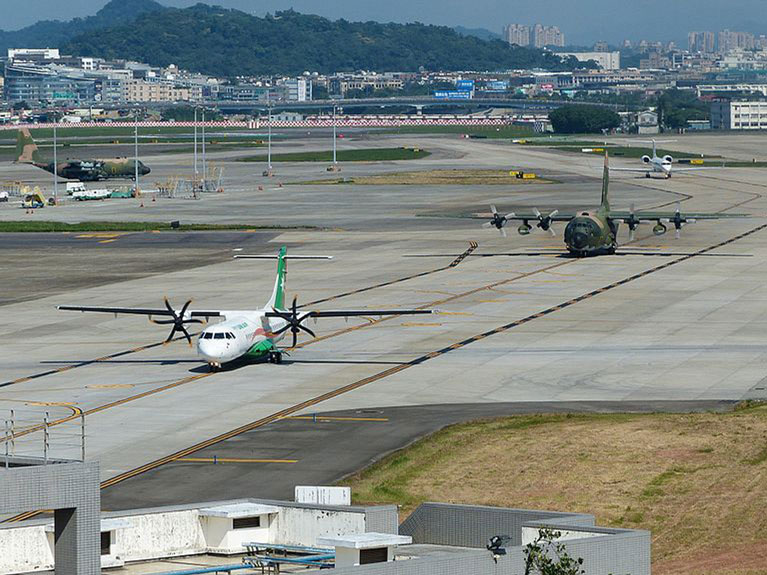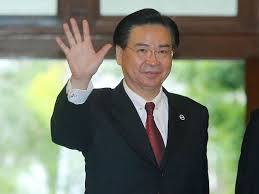Taiwan’s Cargo Sector Finds ICAO Membership Denial “Unfair and Suffocating”
During a recent visit to Taipei, the capital of Taiwan, journalists got glimpses of the island’s international isolation; barred from international organizations, the island is denied important information on security and safety standards for running a country’s air-transportation system.
Despite its non-recognition by the United Nations and other international organizations, Taiwan is a de facto functioning state with all the vital organs of a thriving democracy and a vibrant economy. According to the International Monetary Fund (IMF), Taiwan is the world’s 23rdlargest economy in GDP terms with the fifth largest forex reserves of$456.7 billion.
“It’s unfair and suffocating that Taiwan is denied access to important information on international safety standards laid down by the International Civil Aviation Organization (ICAO) whose behavior is not in line with the UN’s much-touted spirit of developing friendly relations among all nations based on mutual respect and the principle of equal rights and self-determination. The UN professes to represent all the people of our planet, yet Taiwan with its 23 million population is denied ICAO membership because of political pressure from a certain source,” laments a Taipei-based air-cargo agent who prefers to remain anonymous because of his company’s business interests.
That “certain source” is China which considers Taiwan a breakaway province and uses its clout to exclude Taiwan from international organizations, including the ICAO, a UN regulatory agency that sets global aviation standards. Taiwan vacated its UN Security Council seat to make way for China in 1971. The “one China” policy has become a euphemism for isolating Taiwan and forcing it to return to the “motherland’s fold”.

Taiwan Air Traffic
At its last conference in Montreal in September 2016, the ICAO slammed the door in Taiwan’s face, although Taiwan had participated in the 2013 ICAO assembly. Speaking to AFN, Taiwanese cargo-handling agents vented their dissatisfaction over Taiwan’s exclusion from the ICAO.
Nevertheless, Taiwan has emerged as a key aviation hub of the region in its own right. Taoyuan Airport, one of the two airports in Taipei, is the world’s fifth busiest international cargo airport and 11thbusiest for international air-passenger traffic, as per the Aviation Council International ranking. Taiwan’s four international airports maintain cargo and passenger air-connectivity worldwide.
Flights originating from Taiwan land in more than 130 cities worldwide. The flight density will grow further because of the traffic expansion at its main international airport which is expected to get a third terminal in about a year’s time to provide relief to the first two which have already reached full capacity.
Without ICAO membership, Taiwan cannot make a contribution in formulating global practices in commercial aviation, though it could provide useful information and intelligence, for example, about typhoons and storms that frequently visit the island, and help the aviation sector of other countries.
China’s attitude to Taiwan has hardened since the election of President Tsai Ing-wen of the Democratic Progressive Party in May 2016; prior to that, China appeared more accommodating to Taiwan under the government of President Ma Ying-jeou (2008-2016) of the Kuomintang party.
ICAO’s Decision Disappointing
Aviation safety is of paramount importance to the international community, including Taiwan, particularly after ICAO’s heightened international aviation safety measures following the September 11 terrorist attacks.
Taiwan’s role in aviation safety is equally vital for the U.S. because a large number of Americans – about 400,000 – travel each year to Taiwan for business and other reasons. The U.S. Congress, the European Parliament and the Australian Parliament have supported Taiwan’s bid for ICAO membership.
Ho Shu-ping, the deputy director general of Taiwan’s Civil Aeronautics Administration, the island’s nodal aviation authority, told the AFN that Taiwan faced a “big disadvantage” because of the ICAO decision to deny Taiwan important information on aviation safety. “Taiwan maintains aviation agreements with 57 countries of the world. Taiwan’s strategic location enables international passenger and cargo carriers to land in Taiwan and fly further to other destinations,” she said.
Ho said it was “very disappointing” that Taiwan is not given ICAO membership although it voluntarily complies with ICAO standards”. After all, she argued, international airlines, including from China, operated flights to Taiwan.
Taiwan, she emphasized, is “very keen” to implement the latest Standards And Recommended Practices (SARPs), the technical specifications adopted by the Council of ICAO, aimed at achieving the highest practicable degree of uniformity in regulations, standards, procedures and organization relating to aircraft, personnel, airways and auxiliary services in all matters in which such uniformity will facilitate and improve air navigation.Denied ICAO membership, Taiwan cannot implement the SARPs requirements, and must rely on other countries, NGOs and private sources to get information - a time-consuming and expensive exercise that also defies the spirit of universality which ICAO represents.
Over 47 airlines operate flights from Taipei to over 100 international destinations across Asia, Europe and North America. Indeed, Taiwan’s airspace is among the busiest in the world, clearing annually over 40 million air-passengers arriving or departing.
Taiwan’s foreign minister Jaushieh Joseph Wu, addressing journalists at the ministry of foreign affairs, said that Taiwan could become an important ICAO member. “With its modern and sophisticated aviation sector, Taiwan can play a constructive role in the ICAO and other international bodies,” Wu said.

After signing a landmark Economic Cooperation Framework Agreement (ECFA) with China in June 2010, Taiwan signed in July 2013 a free trade deal with New Zealand - Taipei’s first-ever with a country with which it does not maintain diplomatic relations - and, in November of that year, inked a trade pact with Singapore. However, follow-on components of the ECFA, including a signed agreement on trade in services and negotiations on trade in goods and dispute resolution, have stalled. Taiwan is interested in joining the Trans-Pacific Partnership and also concluding bilateral trade deals with partners such as the U.S.
© Copyright 1999–2024 American Journal of Transportation. All Rights Reserved


